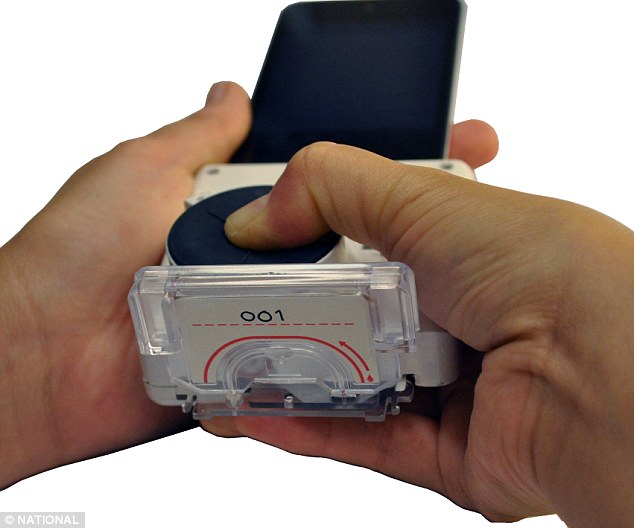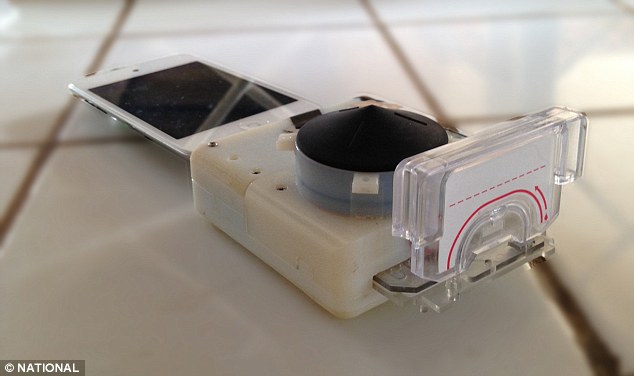Biomedical scientists at Columbia University have developed a new smartphone app that could test blood samples and diagnose HIV and syphilis within 15 minutes. The kit is comprised of a finger-prick dongle that attaches to any smartphone or computer.
Watch the device in action below:
https://www.youtube.com/watch?v=vQGzrak_–U
The new kits can be used in place of a lab test, yet each kit is nearly 540 times less than the cost of current lab testing machines. They are expected to cost around £22.50 to manufacture, compared with the £12,150 cost of a standard lab testing machine. The device is light enough to be able to fit in one hand and takes its power from the phone or computer that it is attached to. This new technology allows testing and diagnosis to be done in remote areas that have little to no access to medical resources.
This little device could potentially save millions of lives.

Health workers have tried the app on the field, with samples taken from 96 patients who were registering themselves for testing at clinics or coming in for voluntary counselling. Associate professor of biomedical engineering at Columbia University, Samuel Sia, said the team’s work showed that full laboratory-quality tests can be run on a smartphone app. In Rwanda, healthcare workers were trained for a mere half hour on how to operate the kits. As for the patients, a whopping 97 percent said they would recommend the device.
In developing countries, getting HIV test results is nothing short of gruelling: In Rwanda, blood samples are usually collected by healthcare workers, who then transport them for testing to a centralized lab facility. “They would have to ship the blood–and sometimes they don’t even have cold storage–over roads that have potholes,” says Dr. Anita Goel, a Harvard-MIT trained physicist and physician. “And if [the sample] doesn’t get damaged or rotten along the way … it will take about six months to run the test.” Afterwards, another healthcare worker would need to track down the patient to deliver the results.
“In practice, the patient may have died, moved on, spread the disease,” says Goel. “It’s very impractical.”

On the other hand, Professor Sia says that the new device, “can transform how health care services are delivered around the world… We know that early diagnosis and treatment in pregnant mothers can greatly reduce adverse consequences to both them and their babies.”
According to Professor Sia:
Our dongle presents new capabilities for a broad range of users, from health care providers to consumers. By increasing detection of syphilis infections, we might be able to reduce deaths by 10-fold. This could nearly stop HIV transmissions and approach elimination of this devastating disease.
Professor Sia’s team’s work is published in Science Translational Medicine.

